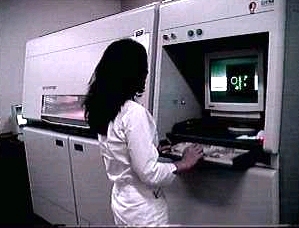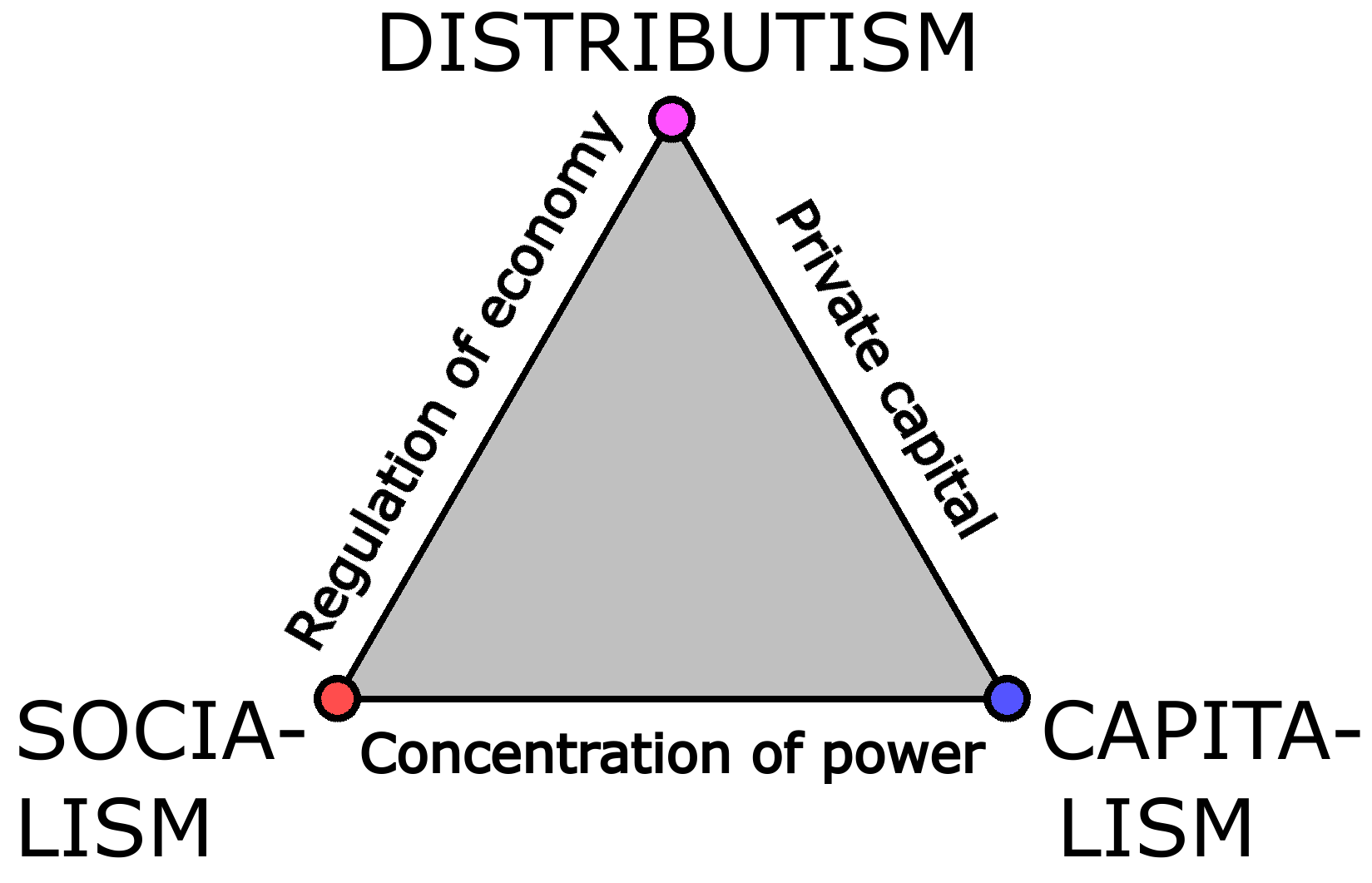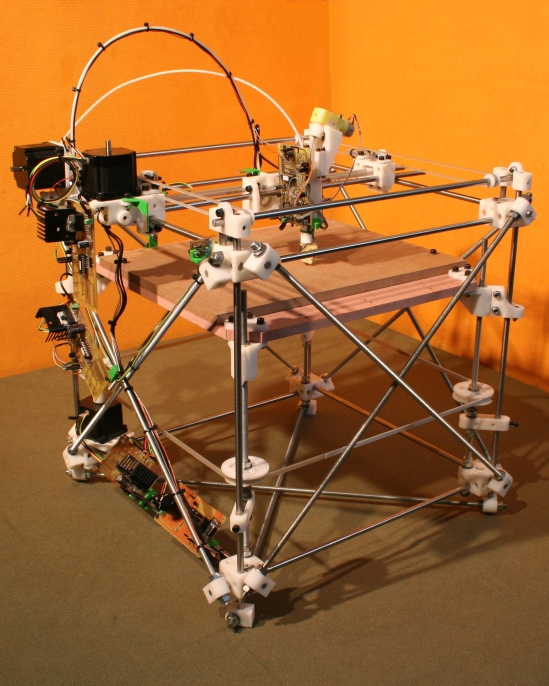|
Distributed Economies
''Distributed economies'' (DE) is a term that was coined by Allan Johansson et al. in 2005.Johansson A, Kisch P, Mirata M., 2005Distributed economies - A new engine for innovation . Journal of Cleaner Production 2005;13:971-9 Definition There is no official definition for DE, but it could be described as a regional approach to promote innovation by small and medium-sized enterprises, as well as sustainable development. The concept is illustrated in the figure below, that shows centralised, decentralised and distributed economies respectively. Features The relations in DE are much more complex than those in a centralised economy. This feature makes the whole economy more stable – leaf nodes no longer rely on just one central node. It also resembles ecological networks, making it a good practical example of industrial ecology. A big advantage of DE is that it enables entities within the network to work much more with regional/local natural resources, finances, human capital, know ... [...More Info...] [...Related Items...] OR: [Wikipedia] [Google] [Baidu] |
Sustainable Development
Sustainable development is an organizing principle for meeting human development goals while also sustaining the ability of natural systems to provide the natural resources and ecosystem services on which the economy and society depend. The desired result is a state of society where living conditions and resources are used to continue to meet human needs without undermining the integrity and stability of the natural system. Sustainable development was defined in the 1987 Brundtland Report as "Development that meets the needs of the present generation without compromising the ability of future generations to meet their own needs".United Nations General Assembly (1987''Report of the World Commission on Environment and Development: Our Common Future'' Transmitted to the General Assembly as an Annex to document A/42/427 – Development and International Co-operation: Environment. As the concept of sustainable development developed, it has shifted its focus more towards the economic ... [...More Info...] [...Related Items...] OR: [Wikipedia] [Google] [Baidu] |
Decentralised
Decentralization or decentralisation is the process by which the activities of an organization, particularly those regarding planning and decision making, are distributed or delegated away from a central, authoritative location or group. Concepts of decentralization have been applied to group dynamics and management science in private businesses and organizations, political science, law and public administration, economics, money and technology. History The word "''centralisation''" came into use in France in 1794 as the post-Revolution French Directory leadership created a new government structure. The word "''décentralisation''" came into usage in the 1820s. "Centralization" entered written English in the first third of the 1800s; mentions of decentralization also first appear during those years. In the mid-1800s Tocqueville would write that the French Revolution began with "a push towards decentralization... ut became,in the end, an extension of centralization."Vivien A ... [...More Info...] [...Related Items...] OR: [Wikipedia] [Google] [Baidu] |
Industrial Ecology
Industrial ecology (IE) is the study of material and energy flows through industrial systems. The global industrial economy can be modelled as a network of industrial processes that extract resources from the Earth and transform those resources into products and services which can be bought and sold to meet the needs of humanity. Industrial ecology seeks to quantify the material flows and document the industrial processes that make modern society function. Industrial ecologists are often concerned with the impacts that industrial activities have on the environment, with use of the planet's supply of natural resources, and with problems of waste disposal. Industrial ecology is a young but growing multidisciplinary field of research which combines aspects of engineering, economics, sociology, toxicology and the natural sciences. Industrial ecology has been defined as a "systems-based, multidisciplinary discourse that seeks to understand emergent behavior of complex integrated ... [...More Info...] [...Related Items...] OR: [Wikipedia] [Google] [Baidu] |
Rapid Prototyping
Rapid prototyping is a group of techniques used to quickly fabricate a scale model of a physical part or assembly using three-dimensional computer aided design (CAD) data. Construction of the part or assembly is usually done using 3D printing or "additive layer manufacturing" technology. The first methods for rapid prototyping became available in the mid 1987 and were used to produce models and prototype parts. Today, they are used for a wide range of applications and are used to manufacture production-quality parts in relatively small numbers if desired without the typical unfavorable short-run economics. This economy has encouraged online service bureaus. Historical surveys of RP technology start with discussions of simulacra production techniques used by 19th-century sculptors. Some modern sculptors use the progeny technology to produce exhibitions and various objects. The ability to reproduce designs from a dataset has given rise to issues of rights, as it is now possibl ... [...More Info...] [...Related Items...] OR: [Wikipedia] [Google] [Baidu] |
Fab Lab
A fab lab (''fabrication laboratory'') is a small-scale workshop offering (personal) digital fabrication. A fab lab is typically equipped with an array of flexible computer-controlled tools that cover several different length scales and various materials, with the aim to make "almost anything". This includes technology-enabled products generally perceived as limited to mass production. While fab labs have yet to compete with mass production and its associated economies of scale in fabricating widely distributed products, they have already shown the potential to empower individuals to create smart devices for themselves. These devices can be tailored to local or personal needs in ways that are not practical or economical using mass production. The fab lab movement is closely aligned with the DIY movement, open-source hardware, maker culture, and the free and open-source movement, and shares philosophy as well as technology with them. History The fab lab program was initia ... [...More Info...] [...Related Items...] OR: [Wikipedia] [Google] [Baidu] |
Decentralized Planning (economics)
A planned economy is a type of economic system where investment, production and the allocation of capital goods takes place according to economy-wide economic plans and production plans. A planned economy may use centralized, decentralized, participatory or Soviet-type forms of economic planning. The level of centralization or decentralization in decision-making and participation depends on the specific type of planning mechanism employed. Socialist states based on the Soviet model have used central planning, although a minority such as the former Socialist Federal Republic of Yugoslavia have adopted some degree of market socialism. Market abolitionist socialism replaces factor markets with direct calculation as the means to coordinate the activities of the various socially-owned economic enterprises that make up the economy. More recent approaches to socialist planning and allocation have come from some economists and computer scientists proposing planning mechanisms base ... [...More Info...] [...Related Items...] OR: [Wikipedia] [Google] [Baidu] |
Distributism
Distributism is an economic theory asserting that the world's productive assets should be widely owned rather than concentrated. Developed in the late 19th and early 20th centuries, distributism was based upon Catholic social teaching principles, especially Pope Leo XIII's teachings in his encyclical ''Rerum novarum'' (1891) and Pope Pius XI in '' Quadragesimo anno'' (1931). It has influenced Anglo Christian Democratic movements, and has been recognized as one of many influences on the social market economy. Distributism views ''laissez-faire'' capitalism and state socialism as equally flawed and exploitative, favouring instead small independent craftsmen and producers, or if that is not possible, economic mechanisms such as cooperatives and member-owned mutual organisations as well as small to medium enterprises and large-scale competition law reform such as antitrust regulations. Christian democratic political parties such as the American Solidarity Party have advocate ... [...More Info...] [...Related Items...] OR: [Wikipedia] [Google] [Baidu] |
Long Tail
In statistics and business, a long tail of some probability distribution, distributions of numbers is the portion of the distribution having many occurrences far from the "head" or central part of the distribution. The distribution could involve popularities, random numbers of occurrences of events with various probabilities, etc. The term is often used loosely, with no definition or an arbitrary definition, but precise definitions are possible. In statistics, the term ''long-tailed distribution'' has a narrow technical meaning, and is a subtype of heavy-tailed distribution. Intuitively, a distribution is (right) long-tailed if, for any fixed amount, when a quantity exceeds a high level, it almost certainly exceeds it by at least that amount: large quantities are probably even larger. Note that there is no sense of ''the'' "long tail" of a distribution, but only the ''property'' of a distribution being long-tailed. In business, the term ''long tail'' is applied to rank-size dis ... [...More Info...] [...Related Items...] OR: [Wikipedia] [Google] [Baidu] |
Open-design Movement
The open-design movement involves the development of physical products, machines and systems through use of publicly shared design information. This includes the making of both free and open-source software (FOSS) as well as open-source hardware. The process is generally facilitated by the Internet and often performed without monetary compensation. The goals and philosophy of the movement are identical to that of the open-source movement, but are implemented for the development of physical products rather than software. Open design is a form of co-creation, where the final product is designed by the users, rather than an external stakeholder such as a private company. Origin Sharing of manufacturing information can be traced back to the 18th and 19th century. Aggressive patenting put an end to that period of extensive knowledge sharing. More recently, principles of open design have been related to the free and open-source software movements.Vallance, Kiani and Nayfeh, Ope ... [...More Info...] [...Related Items...] OR: [Wikipedia] [Google] [Baidu] |
Slow Design
The slow movement (sometimes capitalised Slow movement or Slow Movement) advocates a cultural shift toward slowing down life's pace. It began with Carlo Petrini's protest against the opening of a McDonald's restaurant in Piazza di Spagna, Rome in 1986 that sparked the creation of the slow food movement. Over time, this developed into a subculture in other areas, like the Cittaslow organisation for "slow cities". The "slow" epithet has subsequently been applied to a variety of activities and aspects of culture. Geir Berthelsen and his creation of The World Institute of Slowness presented a vision in 1999 for an entire "slow planet" and a need to teach the world the way of slowness. In Carl Honoré's 2004 book, ''In Praise of Slow'', he describes the slow movement thus: Professor Guttorm Fløistad summarises the philosophy, stating: The slow movement is not organised and controlled by a single organisation. A fundamental characteristic of the slow movement is that it is pr ... [...More Info...] [...Related Items...] OR: [Wikipedia] [Google] [Baidu] |






